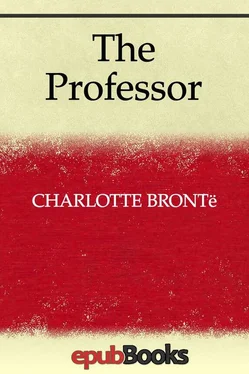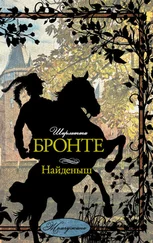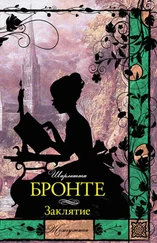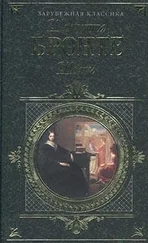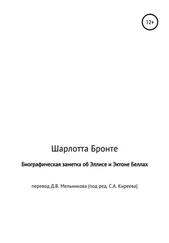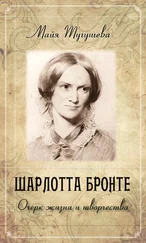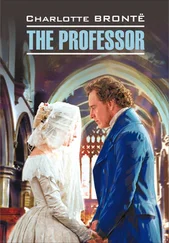Шарлотта Бронте - The Professor
Здесь есть возможность читать онлайн «Шарлотта Бронте - The Professor» — ознакомительный отрывок электронной книги совершенно бесплатно, а после прочтения отрывка купить полную версию. В некоторых случаях можно слушать аудио, скачать через торрент в формате fb2 и присутствует краткое содержание. Год выпуска: 2014, Издательство: epubBooks Classics, Жанр: Классическая проза, на английском языке. Описание произведения, (предисловие) а так же отзывы посетителей доступны на портале библиотеки ЛибКат.
- Название:The Professor
- Автор:
- Издательство:epubBooks Classics
- Жанр:
- Год:2014
- ISBN:нет данных
- Рейтинг книги:3 / 5. Голосов: 1
-
Избранное:Добавить в избранное
- Отзывы:
-
Ваша оценка:
- 60
- 1
- 2
- 3
- 4
- 5
The Professor: краткое содержание, описание и аннотация
Предлагаем к чтению аннотацию, описание, краткое содержание или предисловие (зависит от того, что написал сам автор книги «The Professor»). Если вы не нашли необходимую информацию о книге — напишите в комментариях, мы постараемся отыскать её.
The Professor — читать онлайн ознакомительный отрывок
Ниже представлен текст книги, разбитый по страницам. Система сохранения места последней прочитанной страницы, позволяет с удобством читать онлайн бесплатно книгу «The Professor», без необходимости каждый раз заново искать на чём Вы остановились. Поставьте закладку, и сможете в любой момент перейти на страницу, на которой закончили чтение.
Интервал:
Закладка:
"Your portrait, to any one who loved you, would, for the sake of association, be without price."
That inscrutable Hunsden heard this remark and felt it rather acutely, too, somewhere; for he coloured—a thing not unusual with him, when hit unawares on a tender point. A sort of trouble momentarily darkened his eye, and I believe he filled up the transient pause succeeding his antagonist's home–thrust, by a wish that some one did love him as he would like to be loved—some one whose love he could unreservedly return.
The lady pursued her temporary advantage.
"If your world is a world without associations, Mr. Hunsden, I no longer wonder that you hate England so. I don't clearly know what Paradise is, and what angels are; yet taking it to be the most glorious region I can conceive, and angels the most elevated existences—if one of them—if Abdiel the Faithful himself" (she was thinking of Milton) "were suddenly stripped of the faculty of association, I think he would soon rush forth from 'the ever–during gates,' leave heaven, and seek what he had lost in hell. Yes, in the very hell from which he turned 'with retorted scorn.'"
Frances' tone in saying this was as marked as her language, and it was when the word "hell" twanged off from her lips, with a somewhat startling emphasis, that Hunsden deigned to bestow one slight glance of admiration. He liked something strong, whether in man or woman; he liked whatever dared to clear conventional limits. He had never before heard a lady say "hell" with that uncompromising sort of accent, and the sound pleased him from a lady's lips; he would fain have had Frances to strike the string again, but it was not in her way. The display of eccentric vigour never gave her pleasure, and it only sounded in her voice or flashed in her countenance when extraordinary circumstances—and those generally painful—forced it out of the depths where it burned latent. To me, once or twice, she had in intimate conversation, uttered venturous thoughts in nervous language; but when the hour of such manifestation was past, I could not recall it; it came of itself and of itself departed. Hunsden's excitations she put by soon with a smile, and recurring to the theme of disputation, said—
"Since England is nothing, why do the continental nations respect her so?"
"I should have thought no child would have asked that question," replied Hunsden, who never at any time gave information without reproving for stupidity those who asked it of him. "If you had been my pupil, as I suppose you once had the misfortune to be that of a deplorable character not a hundred miles off, I would have put you in the corner for such a confession of ignorance. Why, mademoiselle, can't you see that it is our GOLD which buys us French politeness, German good–will, and Swiss servility?" And he sneered diabolically.
"Swiss?" said Frances, catching the word "servility." "Do you call my countrymen servile?" and she started up. I could not suppress a low laugh; there was ire in her glance and defiance in her attitude. "Do you abuse Switzerland to me, Mr. Hunsden? Do you think I have no associations? Do you calculate that I am prepared to dwell only on what vice and degradation may be found in Alpine villages, and to leave quite out of my heart the social greatness of my countrymen, and our blood–earned freedom, and the natural glories of our mountains? You're mistaken—you're mistaken."
"Social greatness? Call it what you will, your countrymen are sensible fellows; they make a marketable article of what to you is an abstract idea; they have, ere this, sold their social greatness and also their blood–earned freedom to be the servants of foreign kings."
"You never were in Switzerland?"
"Yes—I have been there twice."
"You know nothing of it."
"I do."
"And you say the Swiss are mercenary, as a parrot says 'Poor Poll,' or as the Belgians here say the English are not brave, or as the French accuse them of being perfidious: there is no justice in your dictums."
"There is truth."
"I tell you, Mr. Hunsden, you are a more unpractical man than I am an unpractical woman, for you don't acknowledge what really exists; you want to annihilate individual patriotism and national greatness as an atheist would annihilate God and his own soul, by denying their existence."
"Where are you flying to? You are off at a tangent—I thought we were talking about the mercenary nature of the Swiss."
"We were—and if you proved to me that the Swiss are mercenary to–morrow (which you cannot do) I should love Switzerland still."
"You would be mad, then—mad as a March hare—to indulge in a passion for millions of shiploads of soil, timber, snow, and ice."
"Not so mad as you who love nothing."
"There's a method in my madness; there's none in yours."
"Your method is to squeeze the sap out of creation and make manure of the refuse, by way of turning it to what you call use."
"You cannot reason at all," said Hunsden; "there is no logic in you."
"Better to be without logic than without feeling," retorted Frances, who was now passing backwards and forwards from her cupboard to the table, intent, if not on hospitable thoughts, at least on hospitable deeds, for she was laying the cloth, and putting plates, knives and forks thereon.
"Is that a hit at me, mademoiselle? Do you suppose I am without feeling?"
"I suppose you are always interfering with your own feelings, and those of other people, and dogmatizing about the irrationality of this, that, and the other sentiment, and then ordering it to be suppressed because you imagine it to be inconsistent with logic."
"I do right."
Frances had stepped out of sight into a sort of little pantry; she soon reappeared.
"You do right? Indeed, no! You are much mistaken if you think so. Just be so good as to let me get to the fire, Mr. Hunsden; I have something to cook." (An interval occupied in settling a casserole on the fire; then, while she stirred its contents:) "Right! as if it were right to crush any pleasurable sentiment that God has given to man, especially any sentiment that, like patriotism, spreads man's selfishness in wider circles" (fire stirred, dish put down before it).
"Were you born in Switzerland?"
"I should think so, or else why should I call it my country?"
"And where did you get your English features and figure?"
"I am English, too; half the blood in my veins is English; thus I have a right to a double power of patriotism, possessing an interest in two noble, free, and fortunate countries."
"You had an English mother?"
"Yes, yes; and you, I suppose, had a mother from the moon or from Utopia, since not a nation in Europe has a claim on your interest?"
"On the contrary, I'm a universal patriot, if you could understand me rightly: my country is the world."
"Sympathies so widely diffused must be very shallow: will you have the goodness to come to table. Monsieur" (to me who appeared to be now absorbed in reading by moonlight)—"Monsieur, supper is served."
This was said in quite a different voice to that in which she had been bandying phrases with Mr. Hunsden—not so short, graver and softer.
"Frances, what do you mean by preparing, supper? we had no intention of staying."
"Ah, monsieur, but you have stayed, and supper is prepared; you have only the alternative of eating it."
The meal was a foreign one, of course; it consisted in two small but tasty dishes of meat prepared with skill and served with nicety; a salad and "fromage francais," completed it. The business of eating interposed a brief truce between the belligerents, but no sooner was supper disposed of than they were at it again. The fresh subject of dispute ran on the spirit of religious intolerance which Mr. Hunsden affirmed to exist strongly in Switzerland, notwithstanding the professed attachment of the Swiss to freedom. Here Frances had greatly the worst of it, not only because she was unskilled to argue, but because her own real opinions on the point in question happened to coincide pretty nearly with Mr. Hunsden's, and she only contradicted him out of opposition. At last she gave in, confessing that she thought as he thought, but bidding him take notice that she did not consider herself beaten.
Читать дальшеИнтервал:
Закладка:
Похожие книги на «The Professor»
Представляем Вашему вниманию похожие книги на «The Professor» списком для выбора. Мы отобрали схожую по названию и смыслу литературу в надежде предоставить читателям больше вариантов отыскать новые, интересные, ещё непрочитанные произведения.
Обсуждение, отзывы о книге «The Professor» и просто собственные мнения читателей. Оставьте ваши комментарии, напишите, что Вы думаете о произведении, его смысле или главных героях. Укажите что конкретно понравилось, а что нет, и почему Вы так считаете.
